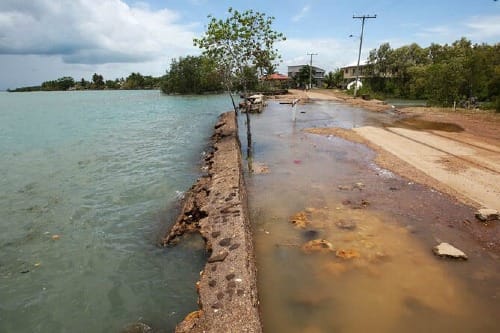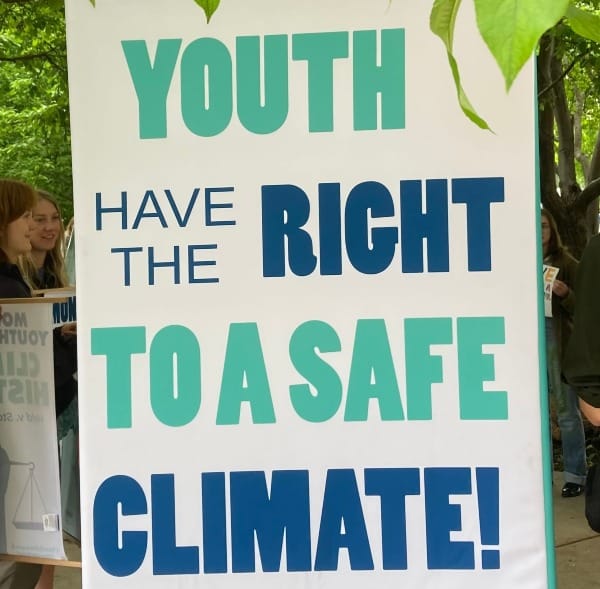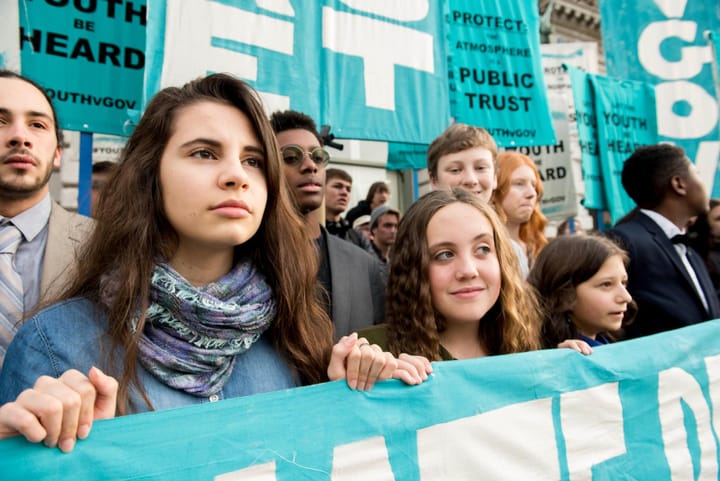Australia Says Torres Strait Islanders' Human Rights Complaint On Climate Should Be Tossed

Responding to a world-first legal complaint on climate change brought by a group of indigenous Australian islanders to the United Nations Human Rights Committee, the Australian government claimed that climate harms are distant “future” risks and denied it has a legal responsibility to act on climate given that Australia’s greenhouse gas emissions are relatively small in a global context.
“Australia’s response to the Islanders’ complaint states the case should be rejected because it concerns future risks, rather than impacts being felt now. Australia’s lawyers also stated that because the country is not the main or only contributor to global warming, climate change action is not its legal responsibility under human rights law,” a press release from the environmental law organization ClientEarth, which is providing legal representation to the Islanders, explains. Australia’s official response has not been made public.
The complaint focuses on alleged human rights violations stemming from climate change, such as the right to life, family, and culture. A group of eight indigenous Australians from the Torres Strait Islands brought the complaint to the UN Human Rights Committee in May 2019. The Torres Strait Islands are situated off the northern tip of Queensland, Australia between the Australian mainland and Papua New Guinea. As low-lying islands, they are particularly vulnerable to climate impacts like rising seas, extreme flooding and erosion. According to ClientEarth, king tides worsened by rising seas already threaten homes and damage important cultural sites like burial grounds. “Many Islanders are worried their islands could disappear in their lifetimes, without urgent action – a concern backed by the latest climate science,” the press release states.
The legal action is the first in the world brought by low-lying islands against a nation state on the issue of climate change, and the first climate case against Australia on human rights grounds. Australia is a signatory of an international human rights treaty, the International Covenant on Civil and Political Rights. The complaint alleges violations of that treaty and was brought before the UN body that monitors compliance with the ICCPR.
The Islanders have called on the Australian government to provide funding for emergency measures such as sea walls and also to slash the country’s greenhouse gas emissions by at least 65 percent (below 2005 levels) by 2030 with a goal of reaching net zero emissions by 2050, and additionally to phase out thermal coal. The government has promised $25 million in funding for sea walls. “This is a start, but it is only crumbs when you consider the scale of the problem and the fact that this will need to be split over 18 islands already experiencing major impacts. And it doesn’t address Australia’s ongoing contribution to climate change through our fossil fuel exports and domestic emissions,” Yessie Mosby, one of the Islanders bringing the complaint, wrote in a new piece published in the Guardian.
According to ClientEarth, now that Australia has officially responded to the complaint, the Islanders will provide their response before October this year. Australia is urging the UN Human Rights Committee to reject or dismiss the legal action.
“It’s shameful that indigenous communities on Australia’s climate frontline are being told that the risk of climate change to their human rights is merely a ‘future hypothetical’ issue, when scientists are clear these impacts will happen in coming decades,” Sophie Marjanac, a ClientEarth lawyer representing the Islanders, said.
“My clients are watching as their traditional lands, their homes, their sacred sites and burial grounds are being eroded by the steadily encroaching waves,” she added. “Climate change risk is foreseeable and only preventable through immediate action in the present. States like Australia have legal duties to protect the human rights of their citizens.”
Even if the UN Human Rights Committee decides in favor of the Islanders that Australia is violating human rights law, Australia would not be forced to comply with the decision. However, it would increase international pressure on Australia and nations usually do comply with rulings by the Committee.


